| Availability: | |
|---|---|
| Quantity: | |
| Product Name | brass housing neodymium pot magnet |
| Material | Neodymium (Nd), Iron (Fe), and Boron (B) |
| Size | Customized size |
| Shape | Customized (block,Disc,Cylinder, Bar, Ring,Arc,Countersunk, Segment, hook) |
| Coating | Customised (Ni, Zn, Epoxy, Gold, etc.) |
| Size tolerance | ±0.08mm for diamater / thickness, ±0.1mm for width / length |
| Density | 9.1-7.1g/cm³ |
| Magnetization | Thickness Magnetized, Axially Magnetized, Diametrally Magnetized |
| Applications | Neodymium(NdFeB) Magnet are widely used in many fields, such as motors, sensors,microphones, wind turbines, wind generators,printer, switchboard, packing box , loudspeakers, magnetic separation, magnetic hooks, magnetic holder, magnetic chuck, ect. |
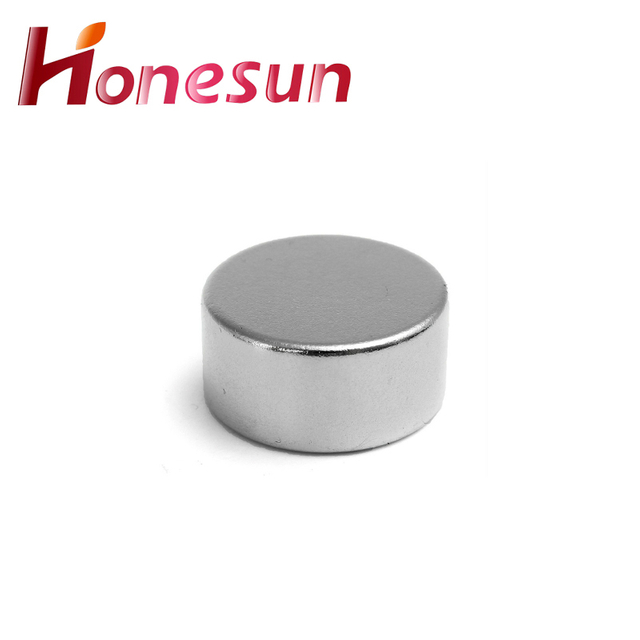
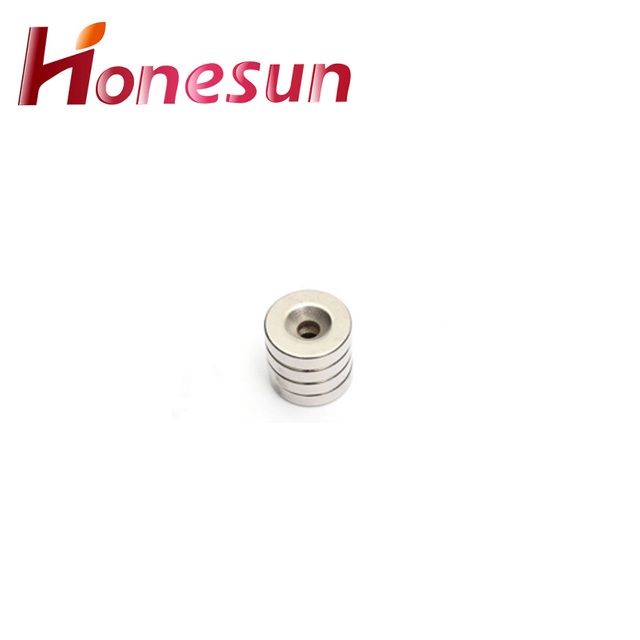
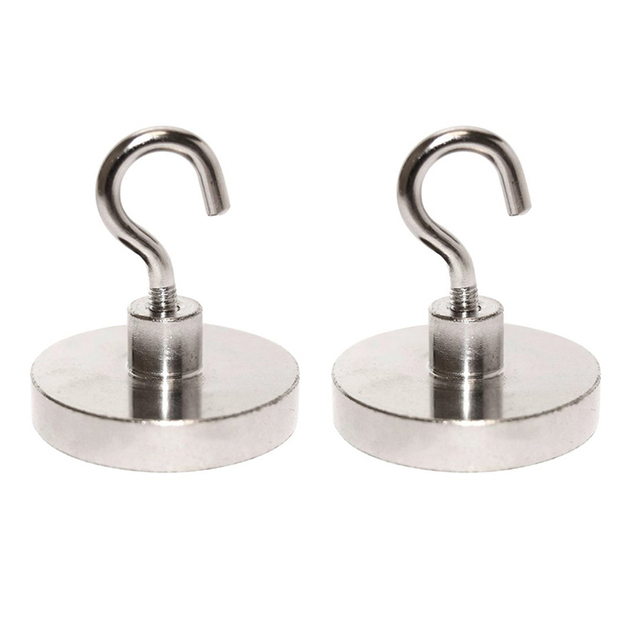
1.How have brass housing neodymium pot magnet revolutionized the manufacturing industry?
Neodymium magnets have revolutionized the manufacturing industry by providing a powerful, lightweight, and cost-effective alternative to traditional ferrite magnets. Neodymium magnets are used in a variety of applications, from motors and generators to sensors and medical equipment. They are also used in the production of consumer electronics, automotive components, and industrial machinery. Neodymium magnets are more powerful than ferrite magnets, allowing for smaller, lighter, and more efficient designs. They are also more cost-effective, making them a popular choice for manufacturers.
2.Are there any ethical concerns regarding the use of brass housing neodymium pot magnet?
Yes, there are ethical concerns regarding the use of Neodymium Magnets. Neodymium magnets are powerful and can cause serious injury if swallowed. They can also interfere with medical devices such as pacemakers and defibrillators. Additionally, Neodymium magnets can be dangerous if used in the wrong way, such as when used to create a powerful magnetic field. Finally, Neodymium magnets can be hazardous to the environment if not disposed of properly.
3.How do you recycle brass housing neodymium pot magnet?
We focus on our customers' needs and strive to meet their expectations, so we take this very seriously. Neodymium magnets are not typically recycled, as they are made from rare earth metals and are difficult to separate and process. It is best to reuse them or donate them to a local school or organization that can use them.
4.About brass housing neodymium pot magnet production skills training
Neodymium magnets are a type of rare earth magnet that is made from an alloy of neodymium, iron, and boron. They are the strongest type of permanent magnet available and are used in a variety of applications, from consumer electronics to industrial machinery. Neodymium magnets production skills training is designed to teach participants the basics of producing neodymium magnets. The training covers topics such as the properties of neodymium magnets, the manufacturing process, and safety considerations. Participants will also learn about the different types of neodymium magnets and their uses. The training is designed to give participants the knowledge and skills needed to produce neodymium magnets in a safe and efficient manner.
5.Can brass housing neodymium pot magnet be used for magnetic data storage?
No, neodymium magnets cannot be used for magnetic data storage. Neodymium magnets are too weak to store data reliably. Magnetic data storage requires much stronger magnets, such as rare earth magnets.
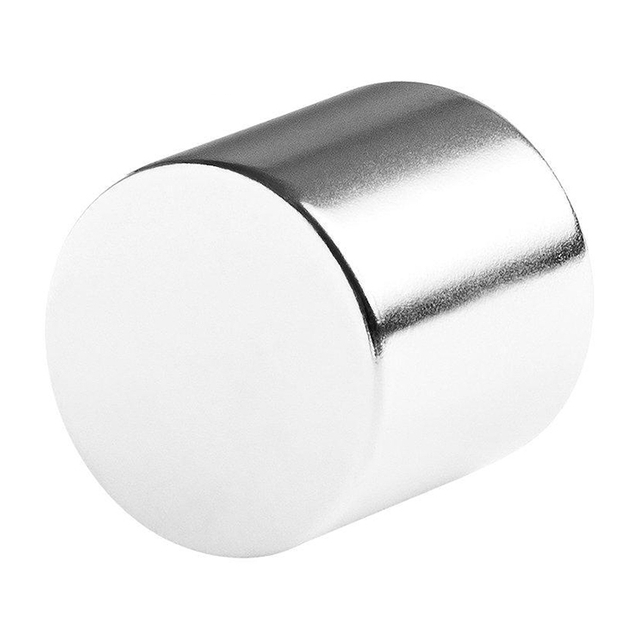
6.Can brass housing neodymium pot magnet lose their magnetism over time?
We focus on teamwork and communication to achieve common goals, We attach great importance to this detail. Yes, neodymium magnets can lose their magnetism over time. This is due to a process called demagnetization, which occurs when the magnet is exposed to high temperatures, strong electrical currents, or other magnets.
7.About brass housing neodymium pot magnet MOQ
The minimum order quantity (MOQ) for neodymium magnets varies depending on the supplier. Generally, the MOQ is between 1 and 10 pieces, but some suppliers may require a higher MOQ.
8.About brass housing neodymium pot magnet customization services
Neodymium magnets are a type of rare earth magnet that is made from an alloy of neodymium, iron, and boron. They are the strongest type of permanent magnet available and are used in a variety of applications, from consumer electronics to industrial machinery. Neodymium magnets can be customized to meet specific requirements, such as size, shape, and strength. Customization services can include machining, coating, and assembly. Customized neodymium magnets can be used in a variety of applications, including motors, sensors, and medical devices.
9.What are the pros and cons of using brass housing neodymium pot magnet?
We have established long-term and stable partnerships with our suppliers, so we have great advantages in price and cost and quality assurance. Pros: - Neodymium magnets are extremely strong and can hold a large amount of weight. - They are very versatile and can be used in a variety of applications. - They are relatively inexpensive and easy to find. - They are corrosion-resistant and can withstand extreme temperatures. Cons: - Neodymium magnets are brittle and can easily break if dropped or mishandled. - They can be dangerous if swallowed, as they can cause serious internal damage. - They can be difficult to work with due to their strength. - They can be expensive depending on the size and grade of the magnet.
10.What is the lifespan of brass housing neodymium pot magnet?
As one of the brass housing neodymium pot magnet market leaders, we are known for innovation and reliability. The lifespan of neodymium magnets depends on the environment they are in and how they are used. Generally, neodymium magnets can last for decades if they are not exposed to extreme temperatures or corrosive materials.
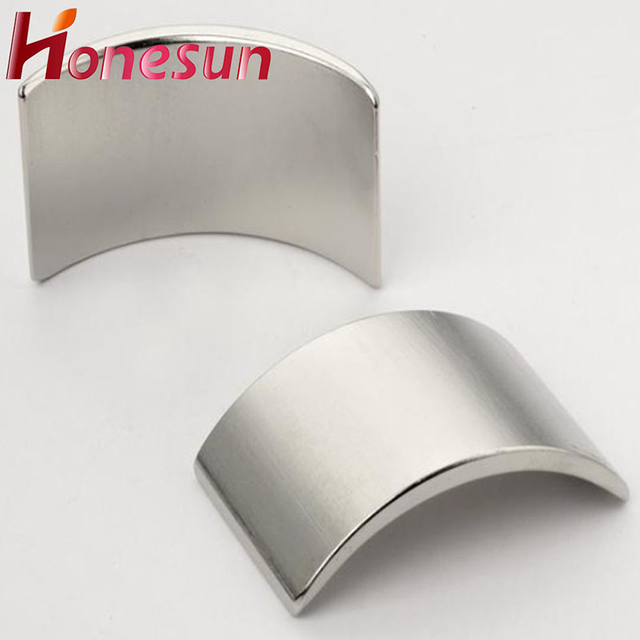
11.How do you store brass housing neodymium pot magnet?
Neodymium magnets should be stored in a dry, temperature-controlled environment away from other magnets or magnetic materials. They should also be stored away from moisture, heat, and direct sunlight. It is also important to keep them away from any ferrous materials, as these can cause the magnets to become magnetized and attract each other.
12.Are there any restrictions on the production or use of brass housing neodymium pot magnet?
Yes, there are restrictions on the production and use of neodymium magnets. Neodymium magnets are subject to the European Union's Restriction of Hazardous Substances (RoHS) directive, which restricts the use of certain hazardous materials in electrical and electronic equipment. Additionally, neodymium magnets are subject to the International Maritime Organization's (IMO) International Maritime Dangerous Goods (IMDG) Code, which regulates the transport of hazardous materials by sea. Finally, neodymium magnets are subject to the United Nations' International Atomic Energy Agency (IAEA) regulations, which regulate the use of radioactive materials.
13.About brass housing neodymium pot magnet production capacity
Neodymium magnets are the strongest type of permanent magnet available. They are made from an alloy of neodymium, iron, and boron. The global production capacity of neodymium magnets is estimated to be around 10,000 tons per year. The majority of neodymium magnets are produced in China, with other countries such as Japan, the United States, and Germany also producing them.
14.What makes brass housing neodymium pot magnet different from other types of magnets?
We are a professional brass housing neodymium pot magnet company dedicated to providing high quality products and services. Neodymium magnets are the strongest type of permanent magnet available. They are made from an alloy of neodymium, iron, and boron and are much stronger than other types of magnets, such as ceramic or alnico magnets. Neodymium magnets are also more resistant to demagnetization than other types of magnets, making them ideal for applications where a strong, permanent magnet is needed.
15.Can brass housing neodymium pot magnet damage credit cards or electronic devices?
Being one of the top brass housing neodymium pot magnet manufacturers in China, We attach great importance to this detail. No, neodymium magnets will not damage credit cards or electronic devices. However, it is important to keep in mind that neodymium magnets are very powerful and can cause damage to other magnetic materials, such as hard drives, speakers, and other electronic components. Therefore, it is important to keep neodymium magnets away from any electronic devices.
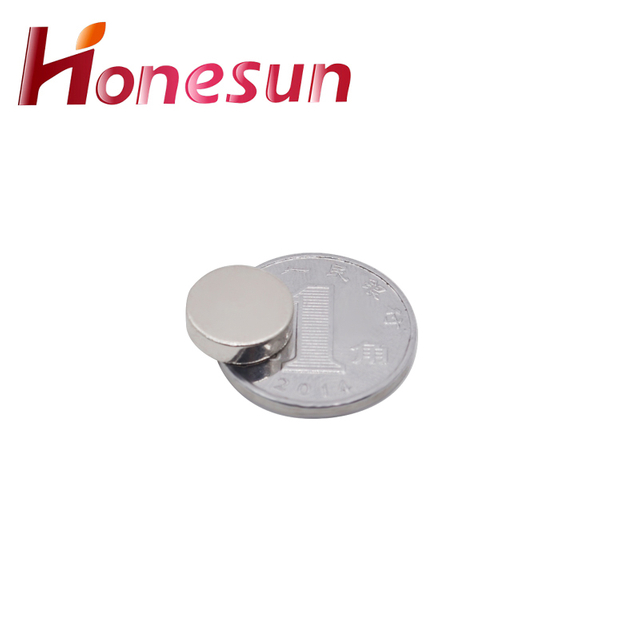
| Product Name | brass housing neodymium pot magnet |
| Material | Neodymium (Nd), Iron (Fe), and Boron (B) |
| Size | Customized size |
| Shape | Customized (block,Disc,Cylinder, Bar, Ring,Arc,Countersunk, Segment, hook) |
| Coating | Customised (Ni, Zn, Epoxy, Gold, etc.) |
| Size tolerance | ±0.08mm for diamater / thickness, ±0.1mm for width / length |
| Density | 9.1-7.1g/cm³ |
| Magnetization | Thickness Magnetized, Axially Magnetized, Diametrally Magnetized |
| Applications | Neodymium(NdFeB) Magnet are widely used in many fields, such as motors, sensors,microphones, wind turbines, wind generators,printer, switchboard, packing box , loudspeakers, magnetic separation, magnetic hooks, magnetic holder, magnetic chuck, ect. |



1.How have brass housing neodymium pot magnet revolutionized the manufacturing industry?
Neodymium magnets have revolutionized the manufacturing industry by providing a powerful, lightweight, and cost-effective alternative to traditional ferrite magnets. Neodymium magnets are used in a variety of applications, from motors and generators to sensors and medical equipment. They are also used in the production of consumer electronics, automotive components, and industrial machinery. Neodymium magnets are more powerful than ferrite magnets, allowing for smaller, lighter, and more efficient designs. They are also more cost-effective, making them a popular choice for manufacturers.
2.Are there any ethical concerns regarding the use of brass housing neodymium pot magnet?
Yes, there are ethical concerns regarding the use of Neodymium Magnets. Neodymium magnets are powerful and can cause serious injury if swallowed. They can also interfere with medical devices such as pacemakers and defibrillators. Additionally, Neodymium magnets can be dangerous if used in the wrong way, such as when used to create a powerful magnetic field. Finally, Neodymium magnets can be hazardous to the environment if not disposed of properly.
3.How do you recycle brass housing neodymium pot magnet?
We focus on our customers' needs and strive to meet their expectations, so we take this very seriously. Neodymium magnets are not typically recycled, as they are made from rare earth metals and are difficult to separate and process. It is best to reuse them or donate them to a local school or organization that can use them.
4.About brass housing neodymium pot magnet production skills training
Neodymium magnets are a type of rare earth magnet that is made from an alloy of neodymium, iron, and boron. They are the strongest type of permanent magnet available and are used in a variety of applications, from consumer electronics to industrial machinery. Neodymium magnets production skills training is designed to teach participants the basics of producing neodymium magnets. The training covers topics such as the properties of neodymium magnets, the manufacturing process, and safety considerations. Participants will also learn about the different types of neodymium magnets and their uses. The training is designed to give participants the knowledge and skills needed to produce neodymium magnets in a safe and efficient manner.
5.Can brass housing neodymium pot magnet be used for magnetic data storage?
No, neodymium magnets cannot be used for magnetic data storage. Neodymium magnets are too weak to store data reliably. Magnetic data storage requires much stronger magnets, such as rare earth magnets.

6.Can brass housing neodymium pot magnet lose their magnetism over time?
We focus on teamwork and communication to achieve common goals, We attach great importance to this detail. Yes, neodymium magnets can lose their magnetism over time. This is due to a process called demagnetization, which occurs when the magnet is exposed to high temperatures, strong electrical currents, or other magnets.
7.About brass housing neodymium pot magnet MOQ
The minimum order quantity (MOQ) for neodymium magnets varies depending on the supplier. Generally, the MOQ is between 1 and 10 pieces, but some suppliers may require a higher MOQ.
8.About brass housing neodymium pot magnet customization services
Neodymium magnets are a type of rare earth magnet that is made from an alloy of neodymium, iron, and boron. They are the strongest type of permanent magnet available and are used in a variety of applications, from consumer electronics to industrial machinery. Neodymium magnets can be customized to meet specific requirements, such as size, shape, and strength. Customization services can include machining, coating, and assembly. Customized neodymium magnets can be used in a variety of applications, including motors, sensors, and medical devices.
9.What are the pros and cons of using brass housing neodymium pot magnet?
We have established long-term and stable partnerships with our suppliers, so we have great advantages in price and cost and quality assurance. Pros: - Neodymium magnets are extremely strong and can hold a large amount of weight. - They are very versatile and can be used in a variety of applications. - They are relatively inexpensive and easy to find. - They are corrosion-resistant and can withstand extreme temperatures. Cons: - Neodymium magnets are brittle and can easily break if dropped or mishandled. - They can be dangerous if swallowed, as they can cause serious internal damage. - They can be difficult to work with due to their strength. - They can be expensive depending on the size and grade of the magnet.
10.What is the lifespan of brass housing neodymium pot magnet?
As one of the brass housing neodymium pot magnet market leaders, we are known for innovation and reliability. The lifespan of neodymium magnets depends on the environment they are in and how they are used. Generally, neodymium magnets can last for decades if they are not exposed to extreme temperatures or corrosive materials.

11.How do you store brass housing neodymium pot magnet?
Neodymium magnets should be stored in a dry, temperature-controlled environment away from other magnets or magnetic materials. They should also be stored away from moisture, heat, and direct sunlight. It is also important to keep them away from any ferrous materials, as these can cause the magnets to become magnetized and attract each other.
12.Are there any restrictions on the production or use of brass housing neodymium pot magnet?
Yes, there are restrictions on the production and use of neodymium magnets. Neodymium magnets are subject to the European Union's Restriction of Hazardous Substances (RoHS) directive, which restricts the use of certain hazardous materials in electrical and electronic equipment. Additionally, neodymium magnets are subject to the International Maritime Organization's (IMO) International Maritime Dangerous Goods (IMDG) Code, which regulates the transport of hazardous materials by sea. Finally, neodymium magnets are subject to the United Nations' International Atomic Energy Agency (IAEA) regulations, which regulate the use of radioactive materials.
13.About brass housing neodymium pot magnet production capacity
Neodymium magnets are the strongest type of permanent magnet available. They are made from an alloy of neodymium, iron, and boron. The global production capacity of neodymium magnets is estimated to be around 10,000 tons per year. The majority of neodymium magnets are produced in China, with other countries such as Japan, the United States, and Germany also producing them.
14.What makes brass housing neodymium pot magnet different from other types of magnets?
We are a professional brass housing neodymium pot magnet company dedicated to providing high quality products and services. Neodymium magnets are the strongest type of permanent magnet available. They are made from an alloy of neodymium, iron, and boron and are much stronger than other types of magnets, such as ceramic or alnico magnets. Neodymium magnets are also more resistant to demagnetization than other types of magnets, making them ideal for applications where a strong, permanent magnet is needed.
15.Can brass housing neodymium pot magnet damage credit cards or electronic devices?
Being one of the top brass housing neodymium pot magnet manufacturers in China, We attach great importance to this detail. No, neodymium magnets will not damage credit cards or electronic devices. However, it is important to keep in mind that neodymium magnets are very powerful and can cause damage to other magnetic materials, such as hard drives, speakers, and other electronic components. Therefore, it is important to keep neodymium magnets away from any electronic devices.

Honesun Industrial Co., Ltd. focuses on designing, researching, developing, manufacturing and selling Magnets and Magnetic Assemblies. With more than 15 years' rich experience and considerate services.we have been recognized as a reliable.



